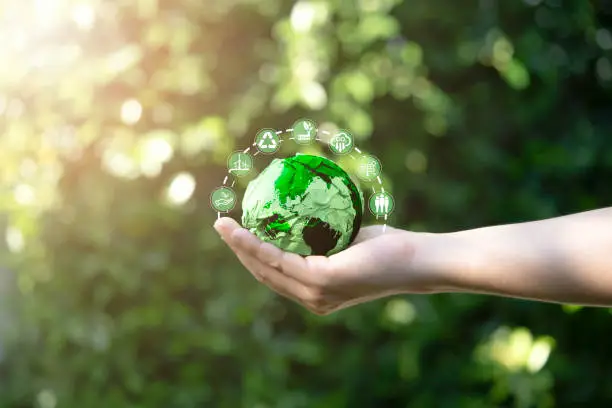MUHAMMADIYAH.OR.ID, JAKARTA – Muhammadiyah launched five environmental programs aimed at promoting sustainability and raising awareness about environmental issues. The initiatives—Hutan Berkemajuan (Progressive Forests), Adiwiyata Berkemajuan (Progressive Green Schools), Green Deen, Green Hajj, and Environmental Cadre Training—focus on conservation, education, and responsible environmental practices.
Chairperson of the Muhammadiyah Council for Environmental Preservation M. Azrul Tanjung highlighted that several efforts had been made before the launch, including the development of an environmentally friendly hajj guidebook. This guide, available in Indonesian, Arabic, and English, will provide pilgrims with practical tips on sustainable practices, such as water conservation.
“We are offering guidelines on responsible water usage for Indonesian hajj pilgrims,” said Azrul at Muhammadiyah headquarters, Jakarta on Friday, March 21.
The Muhammadiyah Council for Environmental Preservation has also been conducting environmental training programs across Indonesia, including in Bali, North Sumatra, North Sulawesi, Riau, and West Sumatra. In April, another training session will be held in Jambi in collaboration with the Hajj Financial Management Agency (BPKH). Additionally, the Council has carried out energy audits for Muhammadiyah institutions in East Java, Central Java, and Yogyakarta, with West Java scheduled next.
Ramadan as a Moment for Raising Environmental Awareness
One of the key initiatives, Hutan Berkemajuan (Progressive Forests), aims to restore unproductive or degraded waqf lands by turning them into forests. This effort seeks to rehabilitate barren areas and promote ecological sustainability.
The Council Secretary Jihad Mubarok emphasized that launching these programs during Ramadan was intentional, as the holy month encourages reflection and positive action.
“Ramadan is a time full of blessings and opportunities for good deeds. We hope launching these initiatives now will inspire positive change and serve as a source of blessing,” said Jihad.
Jihad stressed that these programs are not just for the Council but for the wider community and the environment. By increasing public awareness, Muhammadiyah hopes to encourage more people to support and participate in these efforts.
Additionally, the Council is working with various partners, including BPKH, the Ministry of Environment and Forestry, Republika, Plastikpay, and banking institutions. Jihad explained that these collaborations were formed based on shared commitments to sustainability.
“Through discussions, we found that organizations like the Ministry of Environment and Republika share the same vision as us. Thus, we decided to collaborate and move forward together,” said Jihad.











